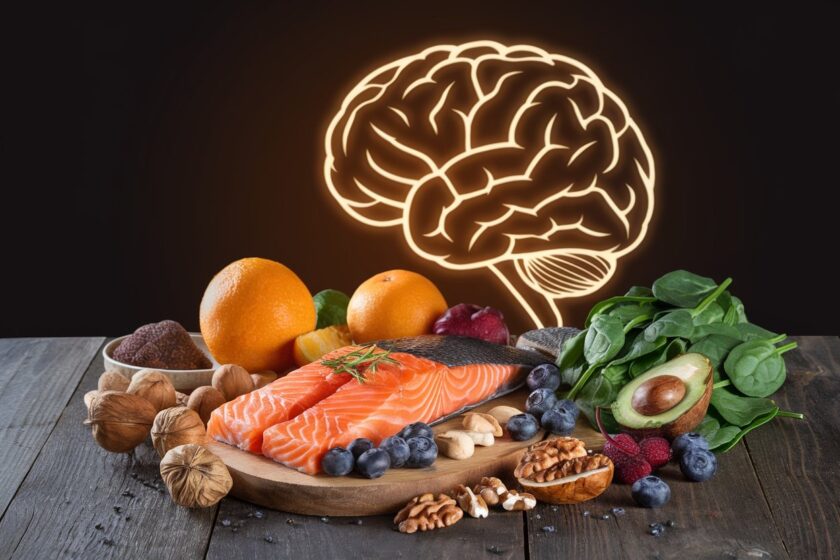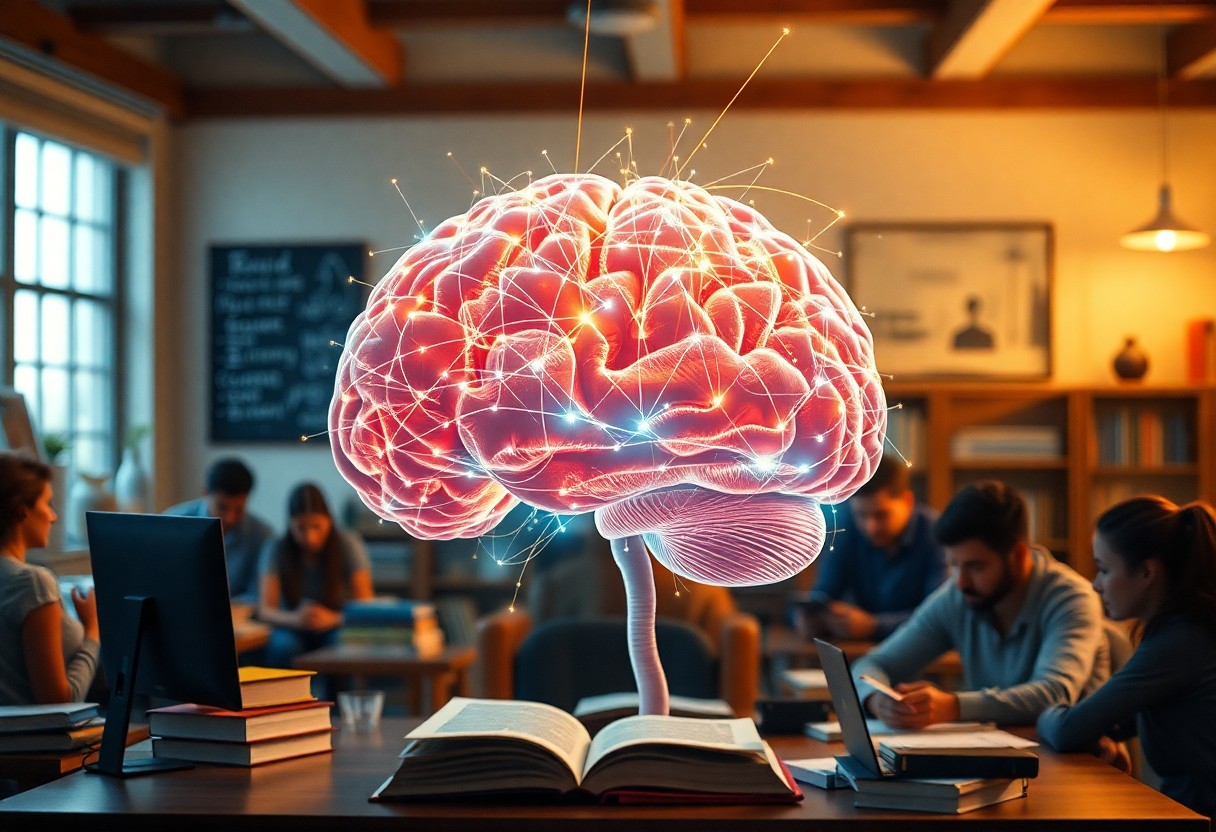There’s a fascinating science at play when it comes to neuroplasticity, your brain’s remarkable ability to adapt and reorganise itself throughout your life. By understanding and utilising this phenomenon, you can enhance your learning capabilities and cultivate new skills more effectively. This post will guide you through practical strategies to harness neuroplasticity, empowering you to embrace lifelong learning and unlock your cognitive potential. Whether you’re looking to pick up a new language, master an instrument, or improve critical thinking, your journey starts here.
Understanding Neuroplasticity
Your brain is a remarkably adaptable organ, capable of rearranging its structure and functionality in response to experiences, learning, and environmental changes. This adaptability, known as neuroplasticity, enables you to form new neural connections throughout your life, allowing for constant growth and development in your cognitive abilities and learning processes.
What is Neuroplasticity?
To put it simply, neuroplasticity refers to the brain’s ability to reorganise itself by forming new neural connections. These changes occur throughout your life in response to learning, experience, and injury, demonstrating that the brain is not a static entity but a dynamic one capable of continual evolution.
Importance of Neuroplasticity in Learning
To fully appreciate the significance of neuroplasticity, you must understand how it impacts your ability to learn and adapt. It allows the brain to efficiently form new pathways, improving your capacity for acquiring new skills, retaining information, and overcoming setbacks.
Understanding the importance of neuroplasticity in learning is vital for your personal and professional growth. It highlights the brain’s ability to adapt in both positive and negative ways. Positive reinforcement and consistent practice can fortify these new connections, enhancing your cognitive functions. However, negative experiences or lack of exposure to stimulating environments can hinder your development. By harnessing neuroplasticity through tailored learning strategies, you can promote lifelong learning and ensure your brain remains resilient and adaptable in an ever-evolving world.
How to Harness Neuroplasticity for Learning
Assuming you wish to harness the power of neuroplasticity, it’s necessary to embrace a mindset of lifelong learning. This involves not just acquiring knowledge, but actively reshaping your brain through diverse experiences and challenges. By understanding that your brain is adaptable, you will be more inclined to seek out new learning opportunities and apply innovative strategies to enhance your cognitive abilities.
Setting Clear Goals
Goals play a vital role in directing your learning efforts. By establishing clear and achievable objectives, you provide your brain with the necessary framework to focus and prioritise new information. This not only boosts motivation but also sets the stage for successful neuroplastic changes, as you consistently work towards accomplishing your targets.
Engaging in Active Learning Techniques
Learning actively involves hands-on experiences, critical thinking, and problem-solving skills. Neuroplasticity thrives when you challenge your brain with stimulating activities, such as experimenting, teaching others, or embracing diverse perspectives. Incorporating techniques like summarising, questioning, and applying knowledge in real-life scenarios not only deepens your understanding but also reinforces neural connections. The more you engage your brain, the stronger and more flexible it becomes, allowing you to adapt and thrive in an ever-changing world.

Tips for Maximizing Brain Potential
Clearly, optimising your brain’s potential involves embracing a variety of strategies. Here are key tips to consider:
- Engage in regular exercise to boost cognitive function.
- Challenge your brain with puzzles and learning activities.
- Maintain a balanced diet rich in brain-boosting nutrients.
- Prioritise sleep for memory consolidation.
- Practice mindfulness for enhanced focus and awareness.
This will set you on a path to unlock your brain’s full potential.
Incorporating Mindfulness Practices
On a daily basis, introducing mindfulness practices can significantly enhance your mental agility. Simple techniques, such as breathing exercises or meditation, help cultivate a state of awareness that enables you to focus better and reduce stress. By dedicating even a few minutes each day to mindfulness, you can improve your cognitive flexibility and foster a conducive environment for learning.
The Role of Consistent Practice
With consistent practice, your brain’s ability to adapt and grow becomes remarkably enhanced. Regularly engaging in activities that challenge your cognitive abilities can lead to lasting improvements in memory retention and problem-solving skills. This routine not only builds neural connections but also reinforces neuroplasticity—the brain’s remarkable ability to reorganise itself. By committing to consistent, varied brain exercises, you’re effectively training your mind to embrace lifelong learning.
Mindfulness is a powerful ally in your journey towards enhancing brain function. By integrating mindfulness techniques into your daily activities, you cultivate a deeper awareness of your thoughts and behaviours, which can lead to improved concentration and emotional regulation. It’s important to establish a consistent practice that fits into your lifestyle, as this can lead to positive changes. Engaging in activities like meditation or mindful breathing can significantly reduce stress, allowing your brain to focus better on learning and memory retention. With these benefits in mind, prioritising mindfulness results in not only a stronger brain but also a more fulfilling approach to lifelong learning.

Factors Influencing Neuroplasticity
Now, several factors play a significant role in enhancing your brain’s ability to adapt and rewire itself. These include:
- Age
- Environment
- Learning Experiences
- Nutrition
- Exercise
Knowing how these elements interact can help you optimise your brain’s potential for lifelong learning.
Nutrition and Brain Health
Nutrition is important for maintaining your brain health. A balanced diet rich in omega-3 fatty acids, antioxidants, and B vitamins supports your cognitive functions and promotes neuroplasticity. Foods like fatty fish, nuts, seeds, and leafy greens can enhance your brain’s flexibility and overall performance.
The Impact of Physical Exercise
With regular physical exercise, your brain can experience substantial benefits that contribute to neuroplasticity. Activities that raise your heart rate not only improve your cardiovascular health, but they also enhance blood flow and nutrient delivery to the brain, facilitating the growth of new neurons and synapses.
Health benefits from exercise are profound, as it significantly increases levels of brain-derived neurotrophic factor (BDNF), a protein that supports neuron survival and encourages the growth of new connections. Furthermore, physical activity can diminish the risks of neurodegenerative diseases and improve your mood by enhancing neurotransmitter levels, such as serotonin and dopamine, which are key to emotional wellbeing. Ultimately, maintaining a consistent exercise regimen can empower you in the journey of cultivating a resilient and adaptable brain.

Overcoming Common Barriers to Learning
Once again, you may encounter various barriers that can hinder your learning journey, such as fear of failure, lack of time, or inadequate resources. Acknowledging these obstacles allows you to address them head-on. By identifying what holds you back, you can develop targeted strategies to work through these challenges and create an environment that fosters continuous growth and resilience.
Identifying Limiting Beliefs
You may hold beliefs that limit your potential, such as thinking you are too old to learn or that you lack the necessary skills. These limiting beliefs can create a mental barrier that stifles your progress. By recognising these thoughts and challenging their validity, you can begin to dismantle these obstacles, paving the way for a more positive mindset towards learning.
Strategies to Boost Motivation
You can enhance your motivation by setting clear, achievable goals, celebrating your progress, and finding a supportive community. Engaging with others who share your interests can provide encouragement and accountability, while focussing on your personal aspirations keeps your learning relevant and enjoyable.
This approach will allow you to create a personalised learning experience that resonates with your interests and values. Establishing specific, measurable goals enables you to track your progress and maintain enthusiasm. Regularly reflecting on your achievements helps solidify your commitment, while joining a community can offer valuable support and inspiration. Furthermore, keeping your learning engaging by exploring various formats—such as books, podcasts, or online courses—will ensure that your motivation remains high throughout your lifelong learning journey.
Building a Lifelong Learning Mindset
Keep fostering a lifelong learning mindset by embracing opportunities for growth and development. By nurturing your enthusiasm for knowledge, you create a strong foundation for Unlock Neuroplasticity In 10 Steps: A Guide To Brain Mastery, ultimately enhancing your cognitive abilities and adaptability in life.
Embracing Curiosity
Learning is an ongoing journey, and cultivating your curiosity is key to unlocking new knowledge and experiences. By asking questions and exploring the unknown, you expand your understanding of the world and remain open to a diverse range of ideas, fueling your passion for lifelong learning.
Cultivating Resilience
On your path to lifelong learning, it’s important to cultivate resilience. Embracing challenges and setbacks as part of your development prepares you to face obstacles with confidence. This mental fortitude allows you to adapt and evolve, ultimately leading to personal growth and success.
With resilience, you can transform failures into valuable lessons, helping you bounce back quickly when faced with adversity. This strength enables you to persevere in the face of stressful situations, allowing your brain to adapt and rewire itself for improved performance. By maintaining a positive mindset and a willingness to learn from experiences, you empower yourself to thrive, both personally and professionally.
Final Words
On the whole, harnessing neuroplasticity empowers you to reshape your brain for lifelong learning. By engaging in challenging activities, adopting a growth mindset, and incorporating mindfulness practices, you can enhance your cognitive abilities and adaptability. These positive changes not only improve your learning potential but also contribute to your overall well-being. Embrace the journey of continuous growth, knowing that your brain is capable of remarkable transformation throughout your life.
FAQ
Q: What is neuroplasticity and how does it relate to lifelong learning?
A: Neuroplasticity refers to the brain’s ability to reorganise itself by forming new neural connections throughout life. This remarkable feature allows the brain to adjust in response to new experiences, learn new information, and recover from injuries. Concerning lifelong learning, harnessing neuroplasticity means that individuals can continuously develop their cognitive abilities, pick up new skills, and adapt to changes in their environment, fostering a mindset that values ongoing education and personal growth.
Q: What techniques can I use to effectively train my brain for lifelong learning?
A: There are several effective techniques to train your brain for lifelong learning. Engaging in regular cognitive exercises, such as puzzles, reading, and learning new languages or instruments, can stimulate neural activity. Practising mindfulness and meditation can enhance focus and emotional regulation, which supports learning. Additionally, establishing a routine that includes varied learning experiences, such as workshops and discussions, can help reinforce the connections in your brain and improve retention of information.
Q: How does physical exercise influence neuroplasticity and cognitive function?
A: Physical exercise has a positive impact on neuroplasticity and cognitive function. Exercise increases blood flow to the brain, leading to the release of neurotrophic factors that promote the growth of new neurons and synapses. This means that regular cardiovascular activity not only helps improve mood and reduce stress but also enhances memory and learning capabilities. Incorporating a mix of aerobic and strength-training exercises into your routine can further optimise brain health and support lifelong learning.

